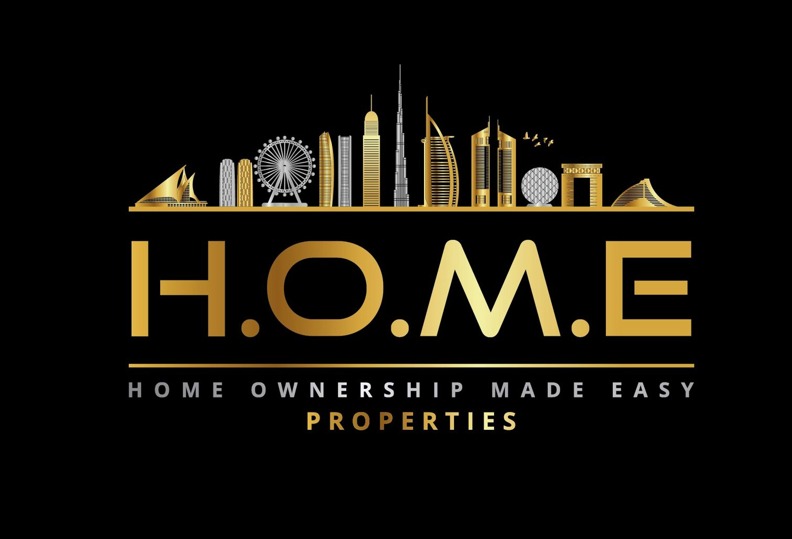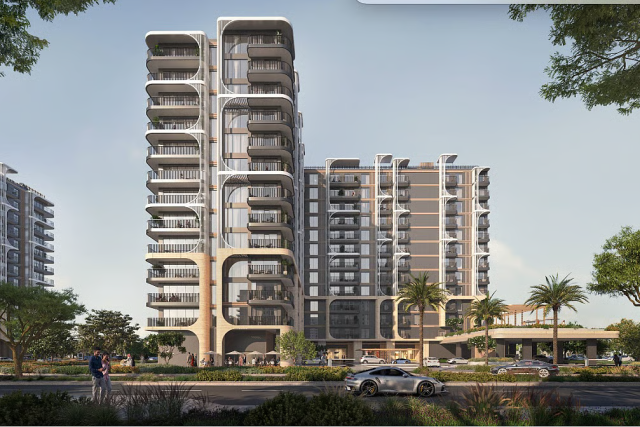
In a strategic move that signals growing maturity of the region’s real estate-technology sector, Property Finder has announced its investment in Stake — a digital real-estate investment platform. This collaboration is a key inflection point for proptech in the Middle East & North Africa (MENA) region, combining the listing-platform reach of Property Finder with the fractional-investment innovation of Stake.
Why this deal matters

At first glance, this may look like just another investment in the startup world. But taken in context, it actually highlights several deeper shifts happening in the MENA real-estate and technology sectors:
- Democratisation of real estate investment
Stake enables users to invest in fractional ownership and private real estate funds (in the UAE, Saudi Arabia and the US) from as little as AED 500 (~USD 136). This lowers the barrier to entry for real-estate investment, which historically was restricted to high-net-worth individuals or institutions. By supporting Stake, Property Finder is signalling that accessible, technology-enabled investment is a core part of the future of real estate in MENA. - Proptech as a major growth frontier
Property Finder has long been more than just a listing portal—it is positioning itself as a “lighthouse tech company” in MENA real estate. The company’s press release emphasizes how the “investment reflects shared values of trust, transparency, and innovation” between the two companies. With this investment in Stake, Property Finder is expanding its remit from property search to investment infrastructure—and in doing so, is signalling that real estate tech is a key growth frontier in MENA. - Ecosystem building and collaboration
Michael Lahyani, Founder & CEO of Property Finder, states: “We’ve seen first-hand how Stake has grown … As a company that shares our values … we’re proud to support their continued growth.” Meanwhile Rami Tabbara, Co‐Founder & Co‐CEO of Stake, calls the investment “a huge endorsement of what we’re building.” The language here emphasises collaboration and alignment of vision rather than mere financial backing. For the MENA proptech ecosystem, this kind of partnership fosters networks, credibility, and shared momentum.
What each party brings to the table
Property Finder:
- As MENA’s largest property portal, Property Finder brings brand recognition, listings data, user-traffic and relationships with brokers, developers and consumers.
- By investing in Stake, it extends its value proposition beyond search and into investment—thus broadening its role in the real-estate lifecycle.
- It also signals its broader ambition: “to nurture the MENA tech ecosystem by backing high-growth innovators that align with its vision of building a more transparent, efficient, and data-driven real estate market.”
Stake:
- Founded in 2021, Stake has built a platform that allows fractional property ownership and private real estate fund access for a broad range of investors.
- It has achieved significant traction: “community spanning over 1 million users from 211+ nationalities”, over “250,000 investments across 500+ properties”, and “AED 50 million in rental income” with “AED 1.3 billion in real‐estate transactions to date.”
- Stake is dual-regulated by the DFSA (Dubai Financial Services Authority) and Saudi Arabia’s CMA (Capital Market Authority) for its funds/fractional properties, which gives it regulatory credibility.
In short: Property Finder brings scale, reach and platform credibility; Stake brings innovation, investment infrastructure and access. Together, they form a compelling combination for proptech growth.
Implications for the MENA real-estate tech ecosystem

Several broader implications arise from this deal:
- Increased accessibility
Fractional ownership and digital investment platforms like Stake make it possible for more people—especially younger, tech‐savvy populations—to participate in real estate. This could expand the investor base in MENA, diversify capital flows, and drive greater liquidity in assets traditionally seen as illiquid. - Data, technology and transparency as differentiators
Both companies emphasise transparency, data-driven decision making and technology. For example, Stake’s business model emphasises transparency and liquidity in fractional ownership. Meanwhile, Property Finder’s value proposition is increasingly about being “data-driven” and “efficient”. This suggests that the next phase of real estate in MENA will be shaped not just by property supply/demand but by tech-enabled platforms, analytics, access and automation. - Regional expansion & cross-market potential
The deal covers UAE, Saudi Arabia and the US (via Stake’s capability) but the ecosystem implication is regional. With Saudi Arabia, UAE and other GCC markets pushing for real-estate-and-tech growth, such partnerships provide pathways for scaling across multiple countries. As Property Finder explores opportunities in MENA, such investments give it a foothold in new sub-segments. - Investor confidence in MENA proptech
This investment is a vote of confidence. In the broader context, Property Finder itself secured US$525 million investment in September 2025 from Permira and Blackstone to support its platform growth. When established regional players reinvest in the ecosystem, it signals to global investors that the region’s proptech sector is ripe for scale and innovation.
Key challenges and what to watch
While the prospects are strong, there are several caveats and risks that bear monitoring:
- Regulation & compliance
Real estate and investment products are heavily regulated. Fractional real-estate investment, cross‐border flows, and fund vehicles may introduce regulatory complexity. Stake is already dual-regulated in key jurisdictions (DFSA, CMA) which is a positive. But as they scale across other MENA countries, navigating local regulation will be critical. - Market cycles & real-estate risk
Real-estate markets are cyclical. MENA has experienced strong ups and downs in the past. Technology and platforms help, but they don’t remove underlying property market risks (supply-demand, macroeconomics, interest rates). For example, some reports flag potential oversupply in Dubai and broader GCC markets. Platforms will need to be resilient to market shocks. - User education & trust
For fractional investment and digital models, trust is paramount. Many investors in MENA may be more accustomed to traditional real‐estate investment models (buying entire properties). Education, transparency, liquidity, exit-mechanisms will all be key for adoption at scale. - Competition & differentiation
As proptech in MENA matures, competition will increase. Platforms will need to differentiate via user-experience, technology, product features (e.g., secondary markets for fractional holdings), partnerships with developers, and regulatory certifications. Stake and Property Finder have early advantage; but new entrants will challenge.
What this means for buyers, sellers & investors
- For individual investors: The partnership means more accessible investment routes. Rather than needing large capital to buy whole properties, you can invest via fractional platforms (such as Stake) and get exposure to real-estate returns with lower entry.
- For sellers/developers: They may gain new channels for funding and liquidity. Fractional platforms could become another mechanism for developers to raise capital or for owners to monetise assets.
- For brokers/agents and listing platforms: This evolution means that the real-estate value chain is expanding. Beyond listing and transactional brokerage, platforms may participate in investment flows, analytics, asset-monetisation, secondary markets—and broker roles may evolve accordingly.
Looking ahead: what to expect
- Expansion into new markets: With the backdrop of Saudi Vision 2030, UAE’s push for tech-enabled economies and proptech growth, we can expect more cross-border investment platforms, regional standardisation of regulation, more M&A or partnerships in proptech.
- Technology upgrades: Expect more AI/ML, data-analytics, virtual/augmented-reality property tours, blockchain for title/fractional ownership, secondary marketplaces for fractional shares etc. The platform orientation is shifting from static listing to dynamic investment ecosystems.
- Greater liquidity in real-estate assets: Fractionalisation introduces liquidity that real‐estate traditionally lacked. If combined with marketplaces and secondary trading, real estate may start to behave more like an investable asset class (much like stocks or funds) for many more participants.
- New business models & hybrid roles: Real-estate companies may morph into tech‐platforms rather than just brokers or listing portals. For example, Property Finder is moving beyond listing into investment-platform backing. This shift may reshape how the industry operates in the region.
Conclusion
The investment by Property Finder in Stake may appear as another corporate move, but its significance goes well beyond. It symbolises the transition of real estate in the MENA region from a purely physical-asset, high-barrier domain into a tech-enabled, accessible investment ecosystem.
By combining the market reach and credibility of Property Finder with the innovative model of Stake, there is clear potential for proptech to unlock new types of value—for investors, consumers, developers and the wider economy. The deal underscores that the future of real estate is not just about buildings—it’s about platforms, data, transparency, access and innovation.
For anyone involved in MENA real estate—be it as an investor, broker, developer or technology entrepreneur—this development merits careful watching. The proptech wave is gathering pace, and this partnership may well mark one of the early major milestones.





Leave a Reply